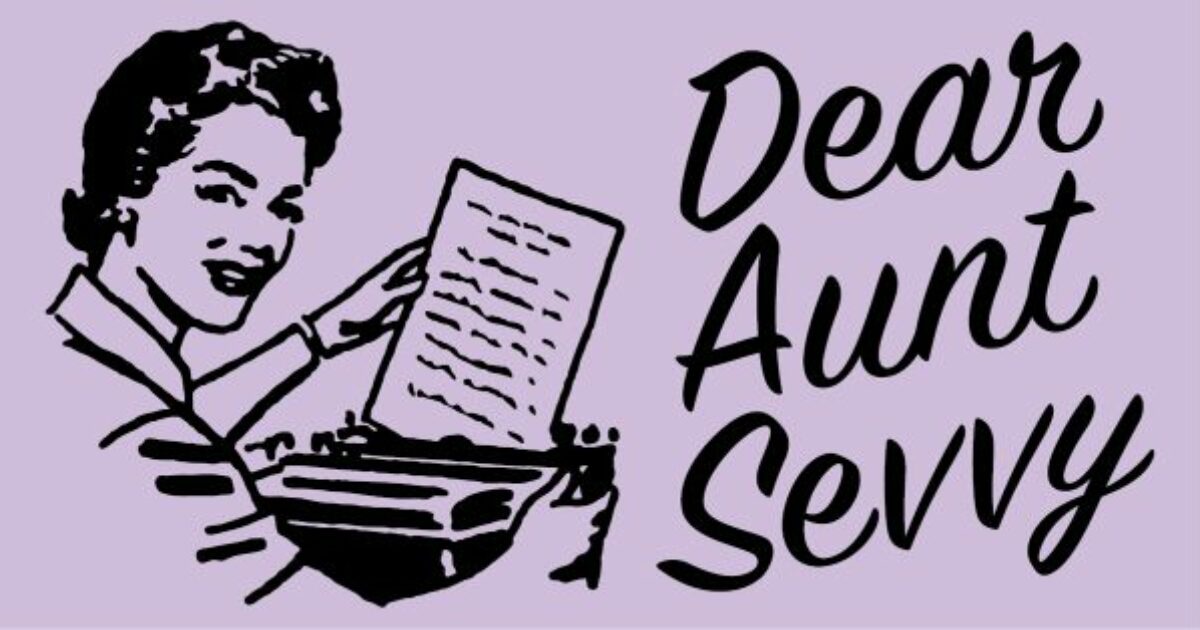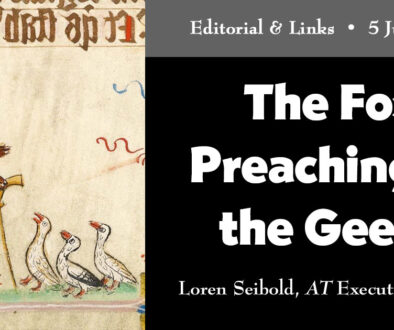Aunt Sevvy, what about unfriending people on social media?
Dear Aunt Sevvy:
Will I be lost because I unfriended someone on Facebook?
Signed, Seriously not serious
Dear Serious,
You indicated that you meant this question tongue-in-cheek. But you raise an issue we need to talk about.
Social media is so new that we are all still figuring out how to use it so that it does more good than harm. And we’ve had some growing pains. Who would have guessed even a few years ago how many of our relationships would have to do with social media, and how much anxiety those remote relationships cause us?
The thing you need to remember about social media is that the relationships are a bit artificial, in the sense that relationships created there don’t represent the full picture of ourselves or others. Good relationships do happen through social media (some wonderful lasting friendships happen only online between people who may never meet—a new concept in our culture). But even the best of them are incomplete, even sometimes twisted like a funhouse mirror, by the lens of the medium we use. For example:
- Aunt Sevvy knew a woman who had a close in-person friendship ruined because her friend was posting offensive political content on her Facebook page. They had been friends in real life, but those posts made their friendship uncomfortable, and they drifted apart.
- Aunty knew a man and woman who met online and were absolutely certain that they were perfect for one another from their year or two of interacting on Facebook. When they met in person they discovered that while the other was a nice person, they were not compatible as potential mates. Their relationship had been shaped by the artificial interaction of social media, and it was quite different face-to-face.
As for the online conflicts you mention, Aunty suggests you think of social media as an exercise in boundary setting—an understanding that we all need to learn. That means that in all of our relationships, at home or at church or in the workplace, we do best when we set boundaries. And that is true of online friendships, too. It means learning to be intentional about protecting our personal needs. It means being with others respectfully yet without getting emotionally entangled in their anxieties. It means knowing when to remain quiet, practice avoidance, or even courteously sever ties. It’s a hard skill to learn.
God cares about relationships. And God cares that we take care of ourselves and aren’t participating in activities that harm us. By those metrics, unfriending someone might be a godly thing to do. Questions to ask yourself:
- Is it to set a boundary that shouldn’t have been crossed?
- Is it to protect an in-person friendship from being ruined?
- Is social media harming your mental health—causing you more anxiety than necessary?
- Will unfriending this person (or a whole bunch of people!) improve your happiness?
If the answer to any of these questions is “yes!” then unfriend, or mute or even block. Sometimes unfriending someone—hiding their posts, or “muting” them for a while—can salvage friendships in the longer term. Aunt Sevvy has personally never regretted unfriending someone who was making her social media experience less enjoyable.
By the way, you needn’t do it petulantly, by telling them off or saying something mean. The kindest way (which social media makes easy) is to just quietly slip away.
An essential, important, not-to-be-forgotten point: take responsibility for your own words online. Don’t be a mean, unkind, insulting person yourself! Don’t do and say things that alienate people you care about! There is an old rule for communication that applies to social media as well as personal encounters. Ask yourself these questions:
Is it true? Is it kind? Is it necessary?
If not, then don’t write it in a comment or post or tweet! Aunt Sevvy begs you to follow those rules, and gives you permission to unfriend anyone else who doesn’t.
Aunt Sevvy
 You can write to Aunt Sevvy at DearAuntSevvy@gmail.com. Please keep questions or comments short. What you send us at this address won’t necessarily be, but could be, published—always without identification of the writer. Aunt Sevvy writes her own column, and her opinions are not necessarily those of Adventist Today’s editors.
You can write to Aunt Sevvy at DearAuntSevvy@gmail.com. Please keep questions or comments short. What you send us at this address won’t necessarily be, but could be, published—always without identification of the writer. Aunt Sevvy writes her own column, and her opinions are not necessarily those of Adventist Today’s editors.




